Yes, She Can!
A Move to Independence

The Lofts at McKinley, a low-rise apartment complex in Phoenix.
Transitions. They are a natural part of life. From child to adult, from adult to parent, from parent to an empty nester, transitions stretch our capabilities, expand our worlds and make us grow. These passages, moving from one role to another, can be stressful and exciting. According to an article in Psychology Today, the most memorable transition is moving one’s home. Especially, when moving out on your own. That’s exactly what Sarah Blue did just a few months ago.
Blue, a member of the DES Division of Developmental Disabilities (DDD), had a desire to be more independent—to live on her own. She mentioned this desire to her DDD Support Coordinator, Ayawovi Afanou-Trenou, during one of their planning meetings. That’s when Afanou-Trenou told Blue and her mother, Roxane Zamora, about DDD’s Housing Engagement, Resources and Opportunity (HERO) program.
The DDD HERO program has a partnership with county, state and federal housing authorities to offer affordable housing opportunities to qualified members. Afanou-Trenou referred Blue’s situation to TG, DDD Housing Project Coordinator, who determined that Blue was a candidate for the federal Section 811 Project Rental Assistance (PRA) Program. PRA “seeks to identify, stimulate, and support successful and innovative state approaches to providing integrated supportive housing for people with disabilities.” With the help of a $2.94 million grant that was awarded to the Arizona Department of Housing, TG was able to offer Blue a choice of several properties in Maricopa County.
But navigating through the various steps and paperwork became stressful. When mother and daughter faced a couple of hurdles, they turned to TG for guidance.
“TG said, ‘Let me just navigate this with you,’” recalled Zamora. “Then the process was really quick. In a few weeks we had an appointment to come look [at apartments].” Blue and Zamora selected a unit at the Lofts at McKinley in Phoenix.
The excitement of Blue’s new home is contagious. Zamora ticks off a list of attributes: “It’s huge. It’s really beautiful. It’s bright. The neighborhood is nice and very well maintained.” Another plus is having a clean slate on which to design your home to fit your personality.
“It’s been fun decorating and shopping,” said Zamora. Zamora credits her daughter with having an eye for home décor. The public areas of Blue’s home are decorated with floral artwork and spirit-lifting quotes. Her bedroom has a Parisian motif.
It’s been two months since the move. Now solidly on her own, Blue receives habilitation services from Leticia Salieda, a caregiver with DDD contracted provider Sonora Sky Community Services. The habilitation services help to improve Blue’s cooking, money and community safety skills. According to Zamora, “Leticia is a great help.”
“Leticia is [Blue’s] friend and her mentor, and not her parent,” said Zamora. “It’s always easier to take advice from somebody else who mentors you than [taking advice from] your parent.”
“Of course, I was nervous about her having an apartment,” Zamora recalled. But over the course of the past two months, “I really see Sarah has grown since she’s been on her own,” the proud mother said. There were a few bumps on the road of independence, “but we worked it out. It’s part of being responsible.”
“We are so proud of Sarah and her accomplishments,” commented TG.
Both Blue and Zamora are fans of the DDD HERO program. “I think it’s a great program,” said Zamora. “I am so excited for Sarah … and for me! Realistically, a child with a disability is exhausting. It’s just a constant state of worry; some of it self-induced. But that’s what has made me feel better. Gosh, she can actually do this and she’s doing it. She’s doing really well!”
Blue smiled when she said, “I told her that.”
Transitions. They’re what helps turn surviving into thriving – just like Sarah Blue.
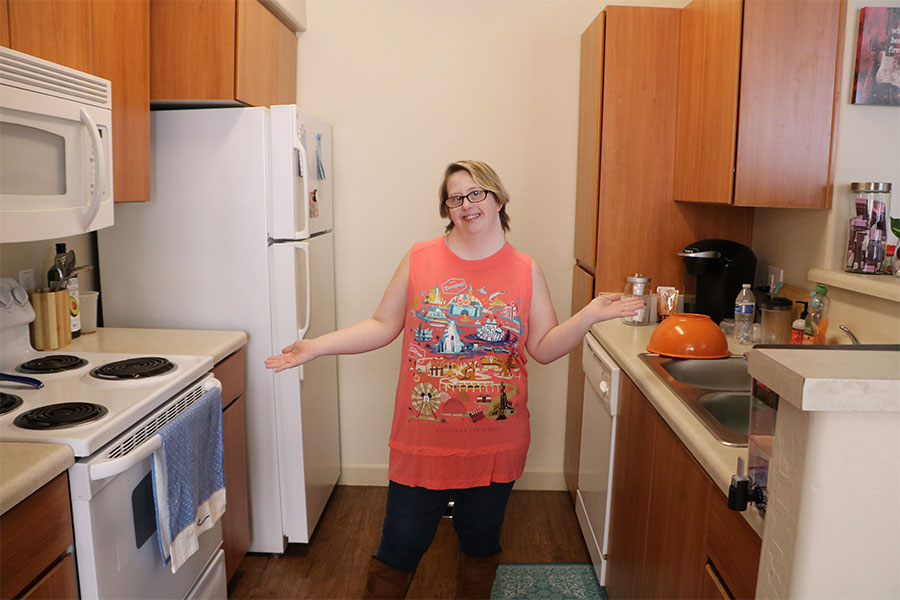
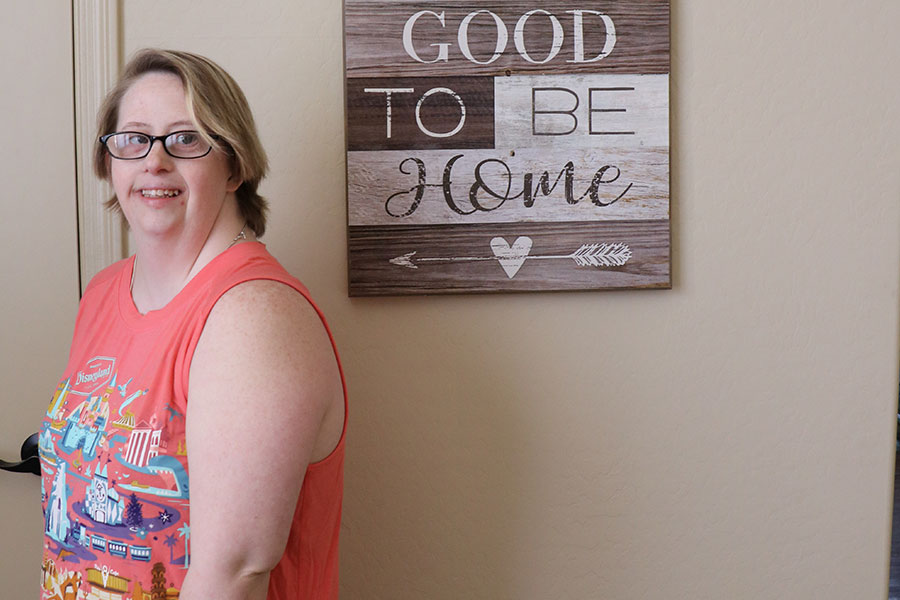
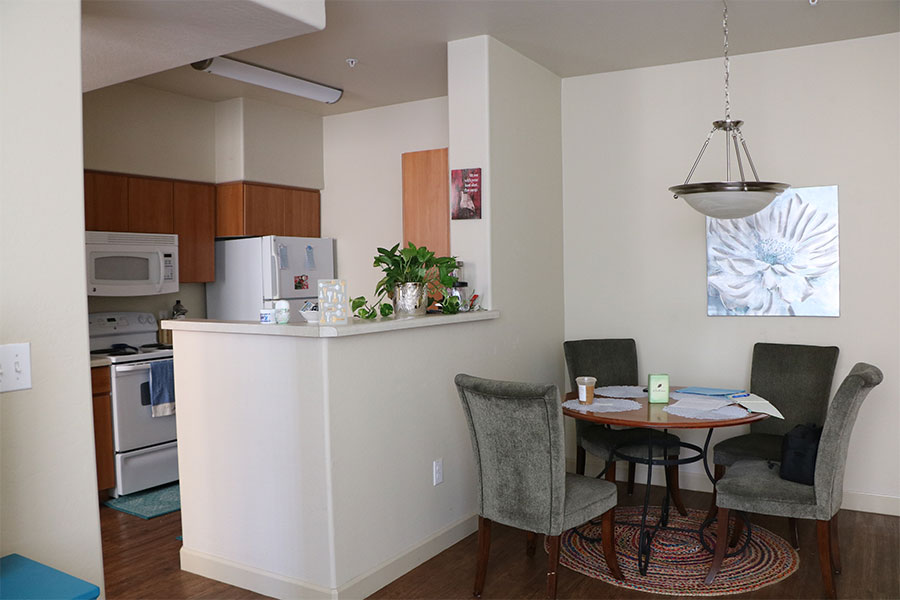
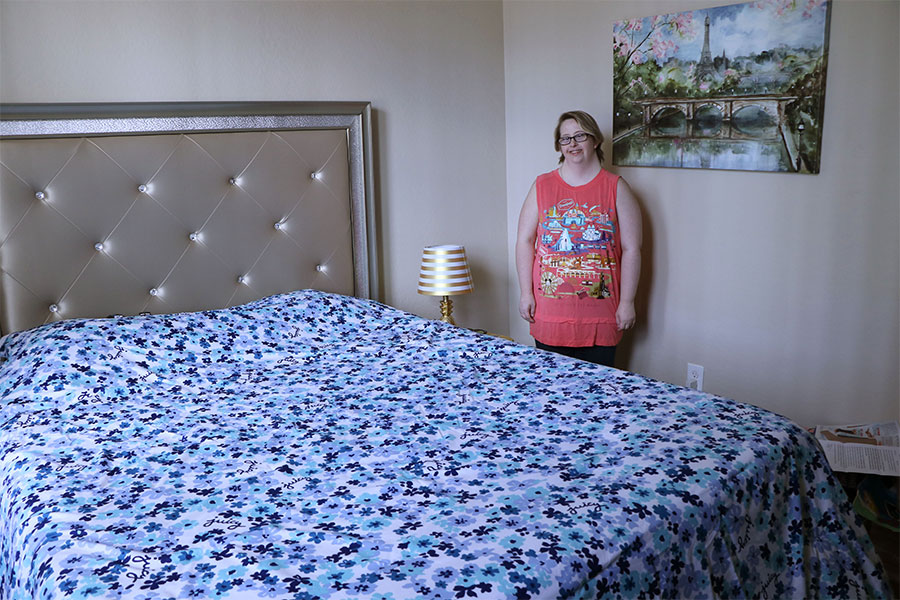
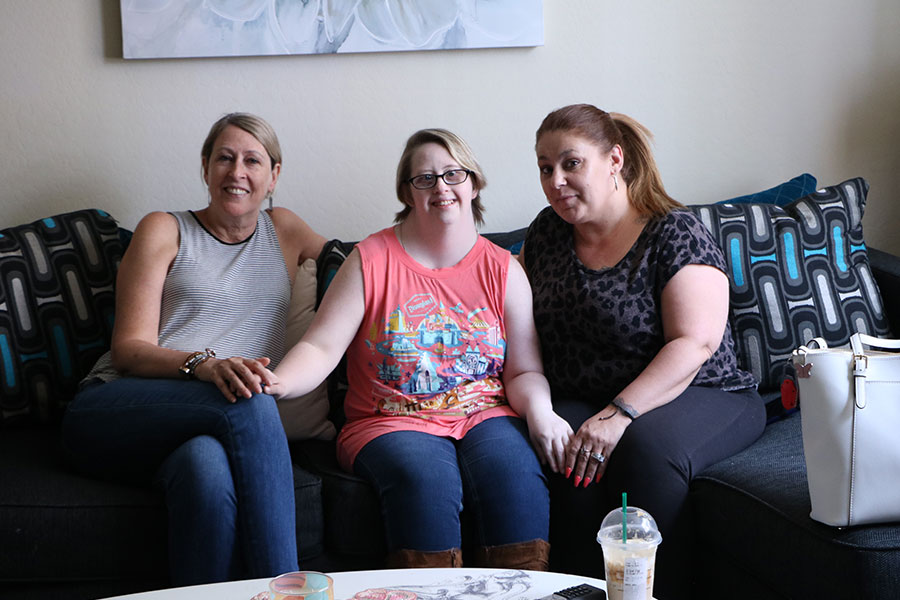
Ready to welcome guests and visitors is Sarah Blue (center) who is joined by her mother, Roxane Zamora (left), and life skills mentor, Leticia Salieda.
By Lyn Riley

